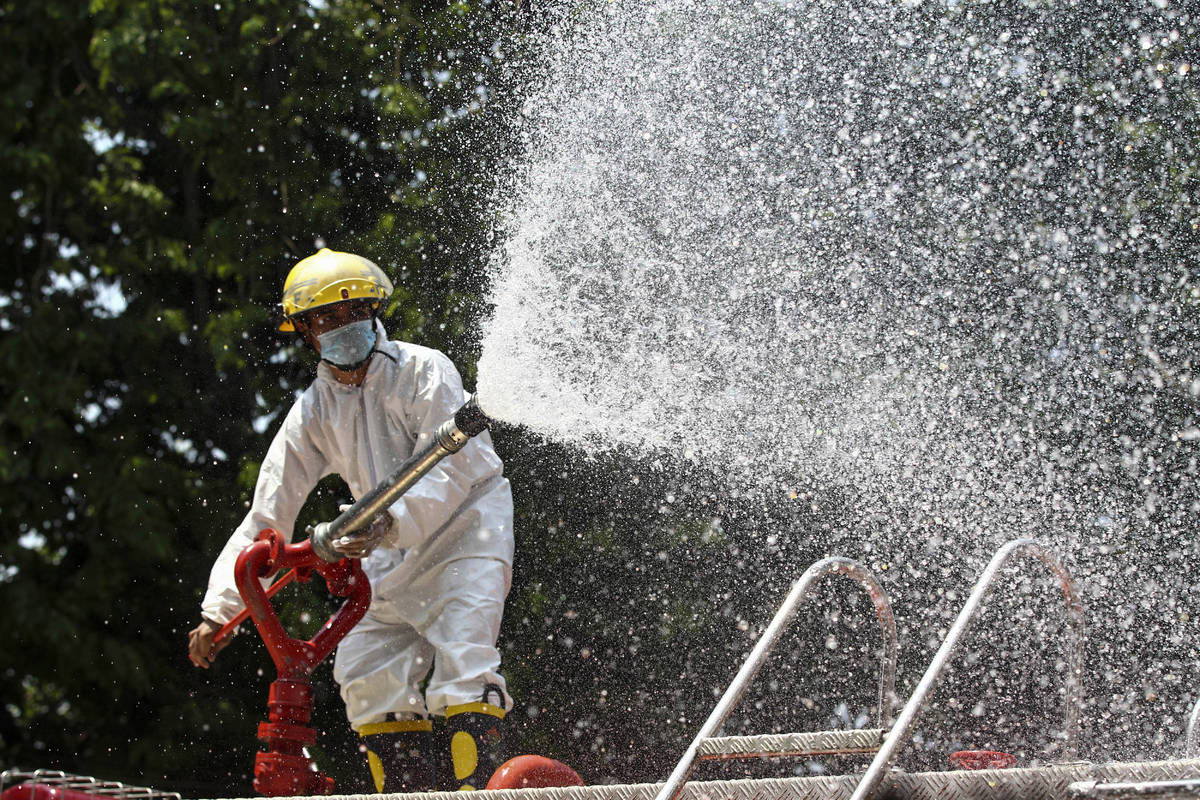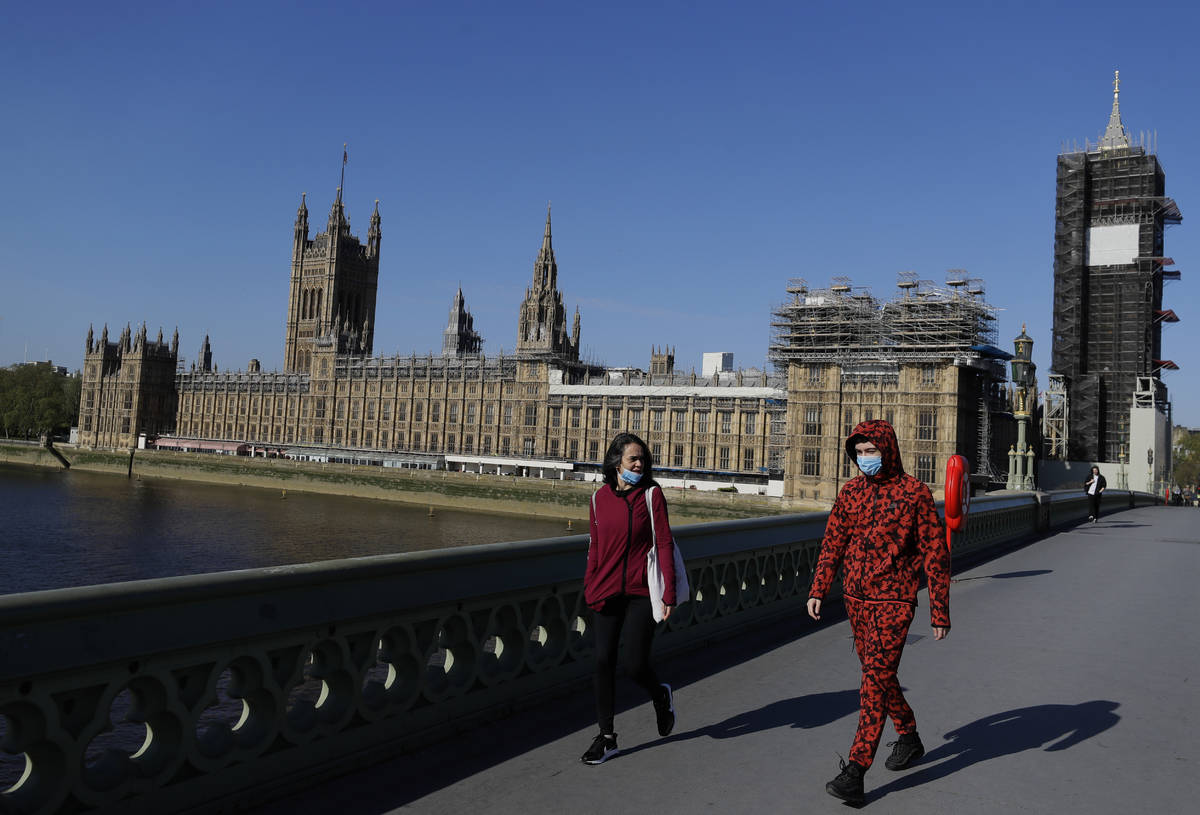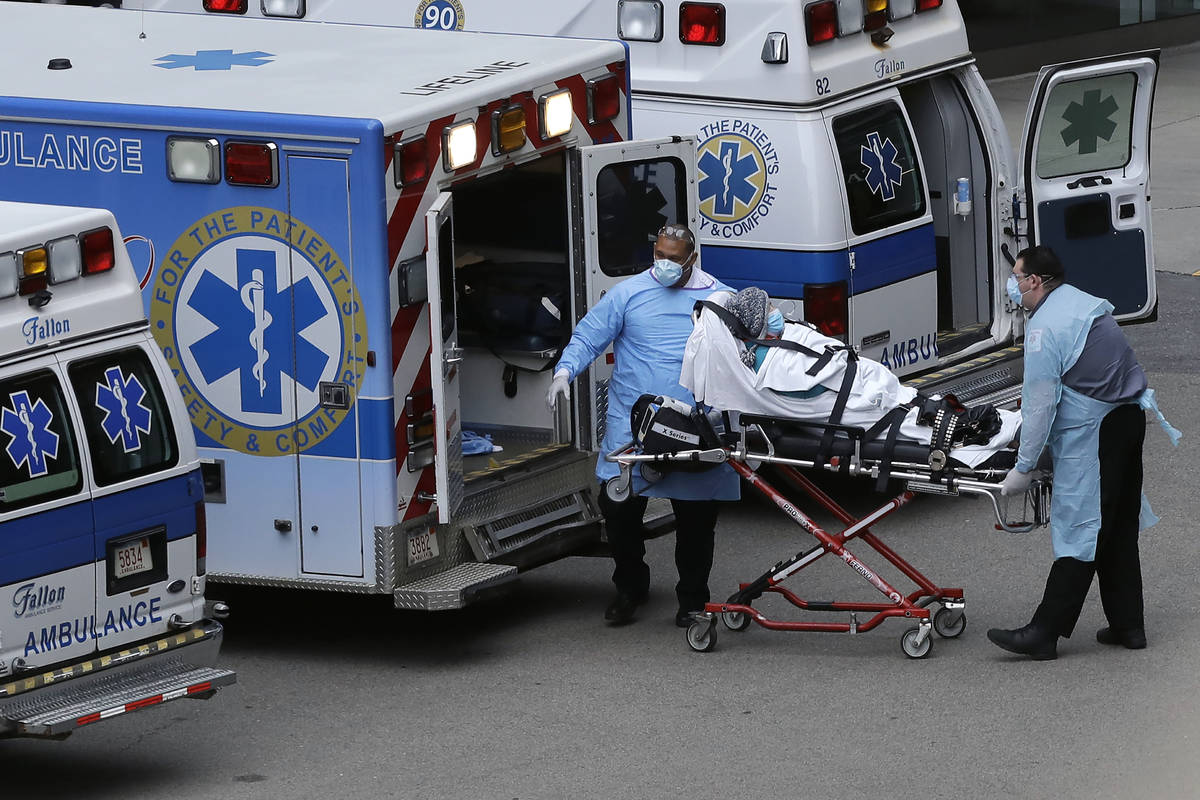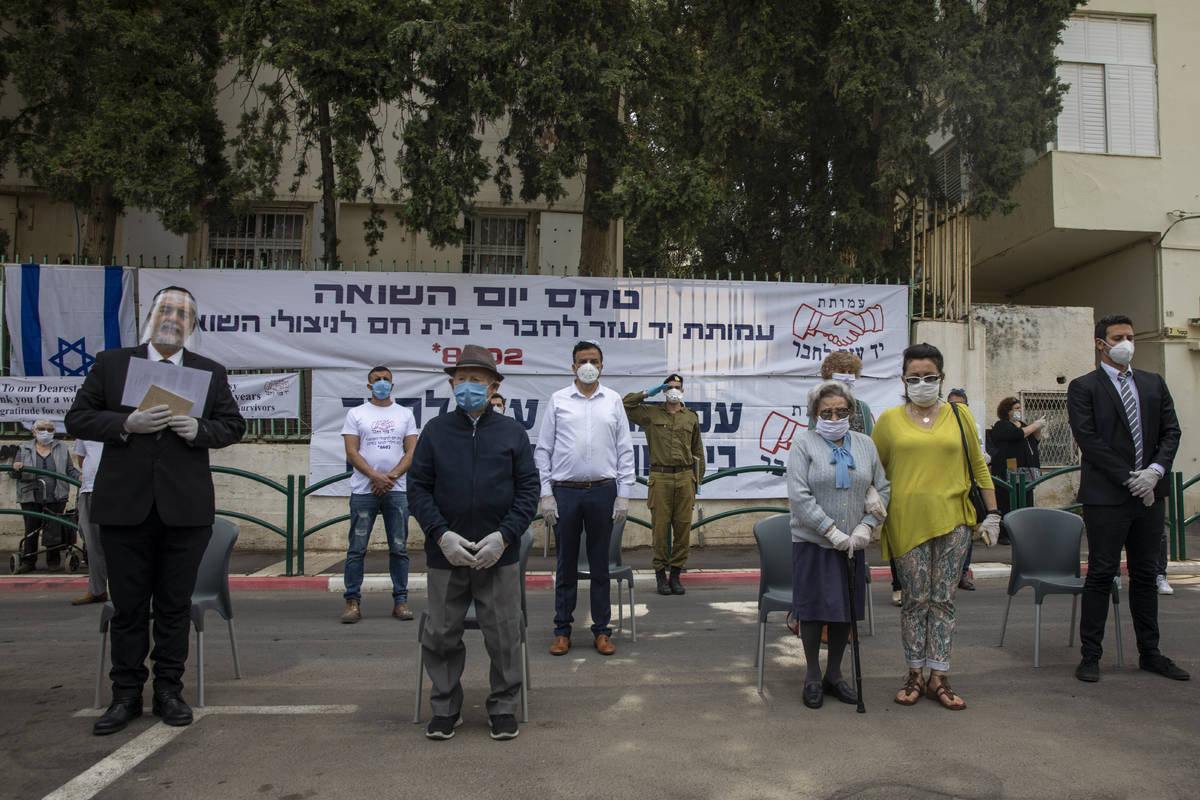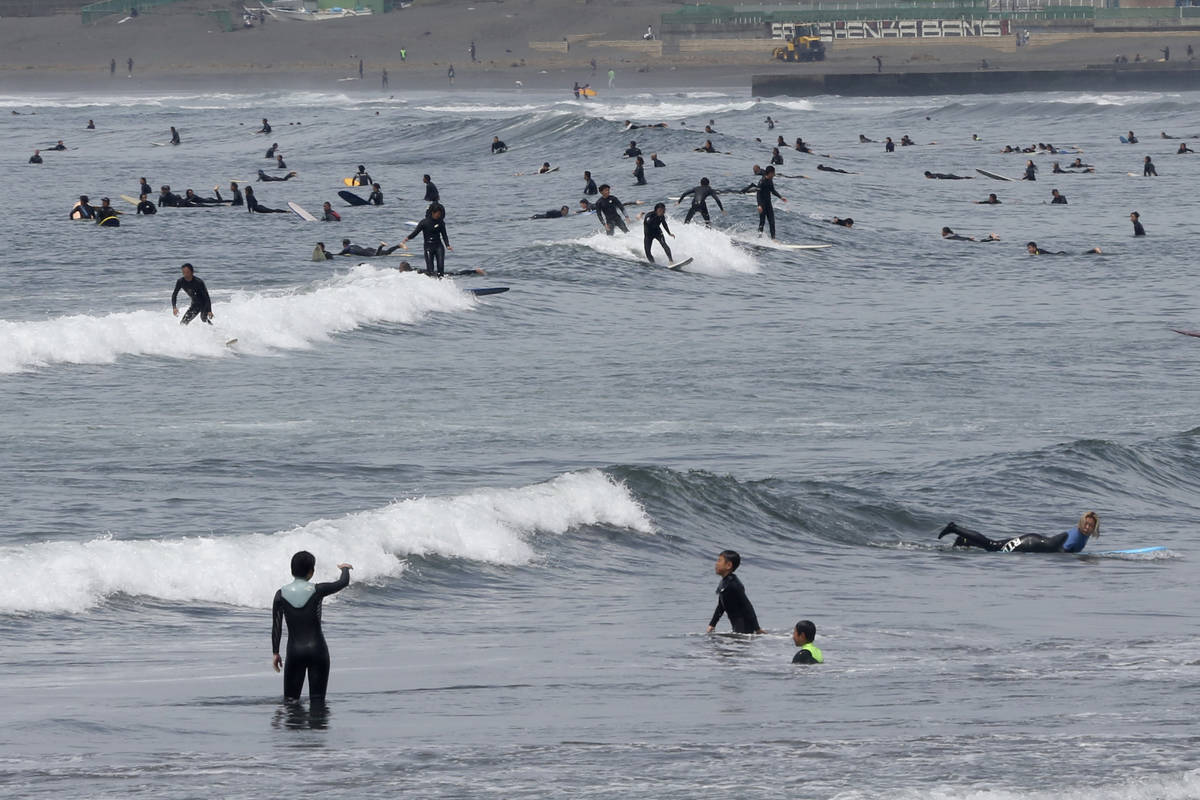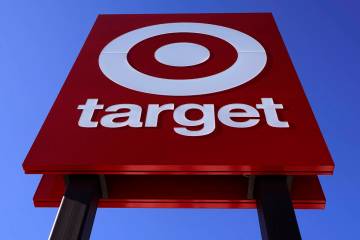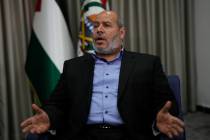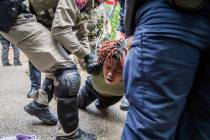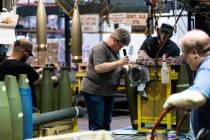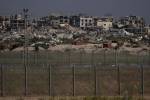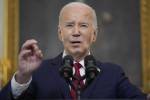Amid virus warnings, nations and states move to reopen
COPENHAGEN — Spain will begin allowing children out of their homes for brief periods next Monday. Denmark announced plans to reopen Tivoli Gardens, the Copenhagen amusement park that inspired Walt Disney. And Australia said doctors can resume non-urgent surgery next week.
Countries across Europe and beyond — joined in the U.S. by a cascade of states — moved to gradually reopen amid warnings that acting too quickly could enable the virus to come back with a vengeance.
Meanwhile, U.N. leaders called for efforts to ensure that all people have access to testing, medical supplies, drugs and future vaccines, especially in developing countries.
African officials have been outspoken about the need for medical supplies across the 54-nation continent, where health care systems are weak and could become overwhelmed.
Even under a best-case scenario, Africa will need $44 billion for testing, personal protective equipment and treatment of coronavirus, according to a report last week by the U.N. Economic Commission for Africa. The worst-case scenario estimates $446 billion would be needed.
What’s happening today
— Countries across Europe and beyond — joined in the U.S. by a cascade of states — moved to gradually reopen amid warnings that acting too quickly could enable the virus to come back with a vengeance. That includes Spain soon to allow children out of their homes for brief periods and the planned reopening of the Copenhagen amusement park that inspired Walt Disney.
— Senate Democratic Leader Chuck Schumer says agreement has been reached on major elements of a nearly $500 billion coronavirus aid package for small businesses, including additional help for hospitals and virus testing. Schumer said the breakthrough came after post-midnight talks among Democratic and Republican leaders, along with Trump administration officials that included White House Chief of Staff Mark Meadows.
— An Associated Press investigation has found companies with thousands of employees, past penalties from government investigations and risks of financial failure even before the coronavirus walloped the economy were among those receiving millions of dollars from a relief fund that Congress created to help small businesses through the crisis. The Paycheck Protection Program was supposed to infuse small businesses with $349 billion in emergency loans that could help keep workers on the job and bills paid on time. But the AP found that at least 75 companies that received the aid were publicly traded and some had market values well over $100 million.
— Oil’s chaotic collapse deepened, and stocks around the world dropped as markets remain upside down amid concern that global economy incapacitated by the virus outbreak doesn’t need to burn as much fuel. The S&P 500 was down nearly 1.5 percent after the first half hour of trading, following larger losses across Europe and Asia.
— U.S. sales of existing homes cratered 8.5 percent in March, according to the National Association of Realtors. The decrease was the steepest since November 2015.
UK deaths spike
The British government says an additional 823 people with the new coronavirus have died in U.K. hospitals, a sharp increase on the previous day’s daily increase of 449.
The number of people dying in hospitals traditionally has spiked sharply on Tuesday following a Monday decline that has been attributed to reporting delays related to the weekend.
In total, 17,337 people have died in U.K. hospitals after testing positive for the coronavirus. The country’s death toll is the fourth highest in Europe, behind Italy, Spain and France, which have all reported more than 20,000 deaths.
Lack of beds in Africa
The World Health Organization said the number of beds in intensive care units available to treat COVID-19 patients in 43 African countries is less than 5,000. That is about five beds per 1 million people, compared with 4,000 beds per 1 million in Europe.
Africa has more than 23,000 infections across the continent, including more than 1,100 deaths. Authorities are trying to expand testing rapidly, with the goal of testing 1 million people over the next four weeks.
Many countries have been grappling with the inequality the virus has often laid bare, and how to ensure everyone has access to protective equipment and other products.
In Spain, which is among the worst-hit countries, authorities are deciding on price caps for face masks, gloves, hand sanitizers and other protective equipment that has been in short supply. The government published an order Sunday saying prices cannot be “exploitative.”
Worldwide, the virus has infected nearly 2.5 million people and caused more than 170,000 deaths, according to a Johns Hopkins University count. The U.S. has recorded more than 42,000 deaths — the highest in the world — and nearly 800,000 infections.
The true toll around the world is believed much higher, in part because of limited testing, difficulties in counting the dead and efforts by some governments to hide the extent of their outbreaks.
Meanwhile, Denmark, Austria, Spain and Germany began allowing some people back to work, including hairdressers, dentists and construction workers.
Copenhagen’s Tivoli Gardens said it will reopen on May 11.
Spain cancels running of the bulls
In Austria, Chancellor Sebastian Kurz said all shops will reopen at the beginning of May and restaurants in mid-May. He said the government will review the situation at two-week intervals, and will “pull the emergency brake if that is necessary.”
But in an indication that it will be a long time before life returns to normal, Spain canceled its running of the bulls in Pamplona in July, an event made world-famous by Ernest Hemingway’s 1926 novel “The Sun Also Rises.” The U.S. canceled the Scripps National Spelling Bee, set for early June. And Germany called off the world-famous Oktoberfest beer festival in Munich, which draws about 6 million visitors each year in the fall.
“We agreed that the risk is simply too high,” Bavarian governor Markus Soeder said after meeting with Munich’s mayor.
Germany, which has been praised for its widespread testing for the virus, allowed small shops to reopen this week. It remains unclear when bars and restaurants will start up again.
In Italy, Premier Giuseppe Conte confirmed that businesses can start reopening on May 4 but doused any hopes of a full end to the country’s strict lockdown.
“Many citizens are tired of the efforts that have been made so far and would like a significant loosening of these measures, or even their total abolition,” Conte said on Facebook. “A decision of that kind would be irresponsible.”
Some US states making plans to open
In the U.S., some states, including Georgia, South Carolina, Tennessee, West Virginia and Colorado, announced plans to gradually reopen in the coming days, despite the concerns of health officials. Boeing and at least one other American heavy equipment manufacturer resumed production.
But governors from many other states said they lack necessary testing supplies and warned they could get hit by a second wave of infections, as people with no symptoms c an still spread the disease.
“Who in this great state actually believes that they care more about jet skiing than saving the lives of the elderly or the vulnerable?” Democratic Michigan Gov. Gretchen Whitmer asked. “This action isn’t about our individual right to gather. It’s about our parents’ right to live.”
The moves come amid soaring unemployment that the International Monetary Fund says could lead to the developed world’s worst economic depression since the 1930s.
Asian and European stock markets followed Wall Street lower on Tuesday after U.S. oil futures plunged below zero, to negative $37.63 per barrel, because of a worldwide glut as factories, automobiles and airplanes sit idle. With the industry running out of places to store oil, sellers are essentially offering to pay buyers to take it off their hands.



